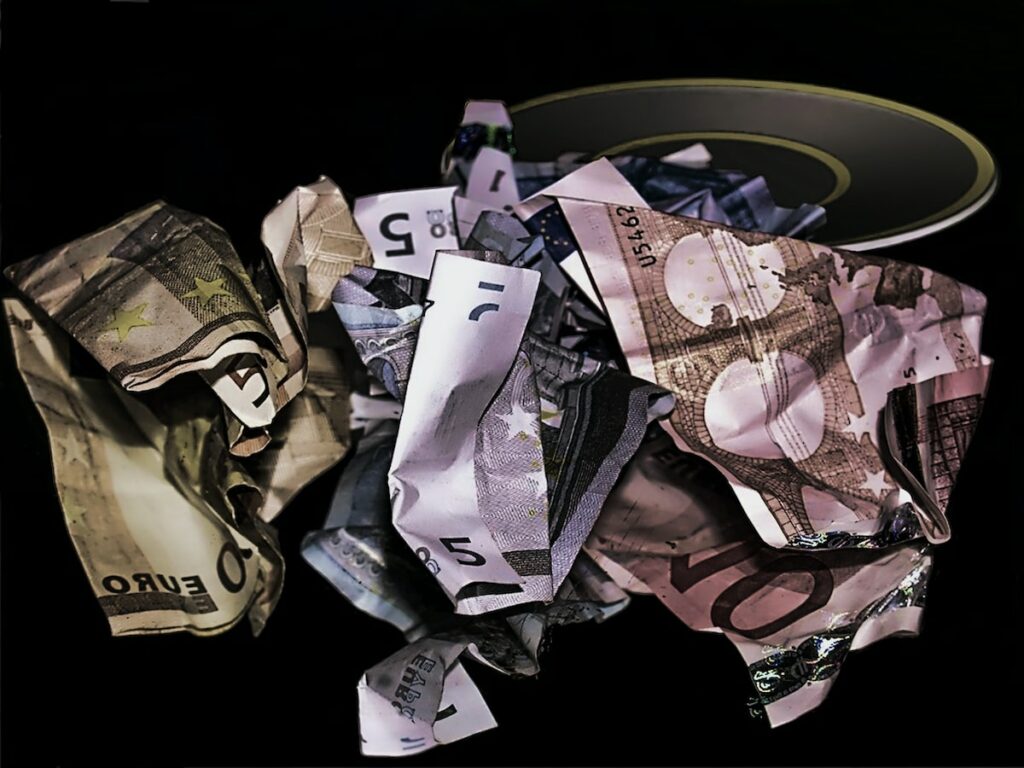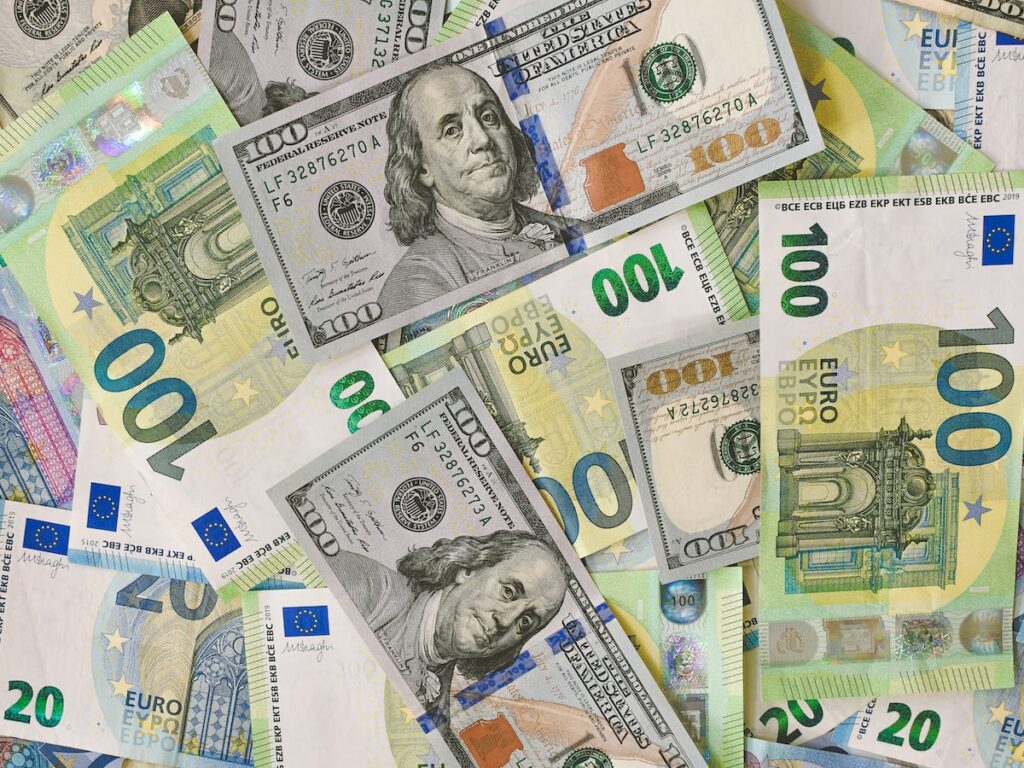Classical Economics Definition
Classical economics is a school of economic thought originated by Adam Smith in late 18th-century that emphasizes the belief that free markets and competition will naturally regulate the economy through laws of supply and demand. It suggests that minimal or even no government intervention is best for economic prosperity and growth, as the invisible hand of the marketplace will guide towards optimum distribution of resources.
Key Principles of Classical Economics
Self-Regulation
A central tenet of classical economics is self-regulation. This theory implies that economies, when left alone, will gravitate towards a state of equilibrium over time. In the labor market, for instance, any initial unemployment problem would correct itself as wages adjust to the new market conditions. Workers would be willing to work for lower wages, reducing unemployment and enabling the market to self-correct without the need for intervention.
Laissez-Faire Policies
Classical economists are proponents of laissez-faire policies, which emphasize minimal intervention on the part of the government in the economy. They argue that interference, such as regulations, taxes, and tariffs, disrupts the natural functioning of the market. In a laissez-faire setting, businesses and consumers freely engage in transactions with little or no interference. Each party aims to maximize its own interest (profits for businesses and utility for consumers), leading to an efficient distribution of resources in the economy.
The Invisible Hand
The concept of the invisible hand is another fundamental principle in classical economics. Coined by Adam Smith, it refers to the unseen force that allows self-interested individuals to contribute to the overall welfare of the society. The pursuit of self-interest by market participants, driven by the desire for profit, results in a system where resources are allocated efficiently, which benefits society as a whole. This concept supports both the self-regulation and laissez-faire policy.
By understanding these principles, we can see how classical economists believed the best way to achieve economic prosperity was to let market forces control the economy, thereby reducing the disparities in wealth and standard of living.
Classical Economics vs. Keynesian Economics
Classical Economics vs. Keynesian Economics: Government Involvement in The Economy
In the realm of government involvement in the economy, classical economists maintain more of a laissez-faire approach. They believe that an economy self-regulates through the invisible hand of the market, promoting a competitive environment through minimal government intervention.
In stark contrast, Keynesian economists hold the view that the government should play an active role when economic downturns occur. They advocate for government interventions like public goods provision, imposing regulations, and changing the tax structure during recessions to mend the economy.
Demand-side Versus Supply-side Policies
The two schools of thought also propound different views on demand-side and supply-side policies. Keynesian economics focuses on demand-side solutions, such as government spending during economic downturns to stimulate demand and spur economic growth. They posit that changes in aggregate demand, whether anticipated or unanticipated, have their most notable short-run effect on real output and employment, not on prices.
Contrasting this, Classical economics is proponent of supply-side policies. They believe that the best way to achieve full employment and stable prices is to encourage supply (production) through policies like tax cuts on business profits, which enables firms to invest, expand and create jobs.
Short-term Versus Long-term focus
Lastly, classical economics and Keynesian economics present different perspectives on the temporal aspects of economic policy; that is, the short-term versus the long-term focus.
Classical economists emphasize a long-term view, asserting that in the long run, the economy will adjust naturally to economic downturns. It is the self-adjusting mechanism of markets that would eventually drive the economy towards full employment.
On the contrary, Keynesian economics focuses on short-term fluctuations and how to address them. Keynesians argue that adjustments in the real world are often slow and painful, leaving little room for natural self-correction mechanisms before significant economic damage is done. They believe in active policy responses to economic downturns, stressing that "In the long run, we are all dead", and that waiting for natural market adjustments can be impractical and unfeasible.
Assumptions of Classical Economics
Perfect Competition
The first assumption made by classical economists is that of perfect competition. They advocate that all market participants are price takers, with no individual or group wielding the power to influence market prices. This presumes that all firms in an industry produce identical or homogeneous products, have equal access to resources, and carry the same level of knowledge about market conditions.
Rationality of Economic Agents
Secondly, classical economics assumes that all economic agents, whether individuals or companies, act rationally. It posits that everyone in the market aims to maximize their benefits–consumers wish to maximize utility, or satisfaction from the consumption of goods and services; producers seek to maximize profits. They systematically evaluate all available information and make calculated decisions that offer them the greatest benefit.
Mobility of Labor and Capital
The third assumption pertains to the free mobility of labor and capital. Classical economists suggest that labor (workers) and capital (money, machinery, buildings, etc.) move freely between different industries and regions in response to differences in wage rates and return on capital. This mobility ensures the most efficient use of resources as labor and capital will naturally gravitate towards areas where they can earn the highest return.
As a result of these assumptions, classic economists believe that supply and demand are the primary forces that shape the economic landscape. Adjustments driven by these forces lead to an equilibrium where resources are allocated optimally, paving the way for economic growth. This is often referred to as the 'invisible hand' concept – the idea that the greed of business owners, combined with the competition for consumers' money, leads naturally to the correct amount of goods being produced at the correct price.
Criticism of Classical Economics
Over-Simplification of Economic Processes
One of the primary criticisms of classical economics is its tendency to over-simplify complex economic processes. For instance, the classical theory assumes that markets function smoothly and achieve equilibrium on their own, without any outside intervention. It assumes a level of economic rationality that may not always exist in real-world markets.
Many argue that real-world economics are far messier than the neat pictures painted by classic theory. For instance, factors like imperfect competition, monopoly power or external shocks from political, environmental or social events can lead to market failures.
Ignorance Towards Short Run Fluctuations
Another criticism against classical economics is that it disregards short run fluctuations and overly concentrates on the long run. It asserts that the economy will always achieve full employment in the long run because wages and prices are flexible. Critics argue that this view overlooks that individuals and businesses are affected by short-term economic changes in reality, such economies experiencing recessions, inflation, or unemployment.
Lack of Consideration for Economic Inequalities
Furthermore, critics argue that classical economics fails to consider economic inequalities. The classical economic theory is underpinned by the belief that wealth produced will trickle down from the rich to the poor, eventually benefiting everyone. This so-called 'trickle down' effect, however, has been highly criticized.
Evidence has shown that, in many instances, wealth does not trickle down as smoothly as proponents of classical economics contend. As a result, significant income and wealth inequalities continue to persist, often leading to social unrest and political instability.
The Assumption of a Closed Economy
Classical economics often assumes a closed economy model that doesn't consider international trade's effect. This is seen as a significant flaw as it doesn't account for the realities of a global economy where international trade plays a crucial role.
Lack of Concern for Non-economic Variables
Classical economics has also been criticized for its lack of consideration for non-economic variables in its models. Factors such as differing cultural practices, societal norms, political circumstances, and environmental considerations significantly impact economic decisions but are often left out of classical economic analysis. This exclusion results in theories that may lack applicability to real-world situations.
Classical Economics and Economic Growth
In the realm of classical economics, economic growth is a key focus. This school of thought heavily emphasises the importance of long-term development over short-term fluctuations, focusing on mechanisms that lead to the steady augmentation of production.
One of the cornerstones of the classical theory of economic growth is Say's Law. This principle, named after economist Jean-Baptiste Say, posits that supply creates its own demand. In other words, in the process of producing goods, businesses create enough income to ensure all products are purchased. It's assumed there's no overproduction or underconsumption in a market; the economy, according to Say's Law, is effectively self-regulating.
Say's Law implies that economic recessions and mass unemployment are temporary or abnormal disruptions, corrected by the market's mechanisms rather than requiring government intervention. While Say's Law was later modified or outright rejected by some economists (notably John Maynard Keynes), its significance in classical economics remains integral.
Another central concept in classical economics is the Importance of Capital Accumulation. Capital accumulation refers to the growth in wealth or the accumulation of assets by businesses, individuals, or a nation.
According to the classical school, capital accumulation fuels economic growth. It does this in two main ways. First, the accumulation of capital increases a nation's ability to produce goods and services. For instance, when a business acquires new machinery and technology, it increases its ability to produce more goods, facilitating economic expansion.
Second, capital accumulation also sustains economic growth by enabling technological progress. Classical economists argue that accumulated capital forms the base for research and development activities, which in turn, lead to technological advancements. These advancements boost productivity further, thus spurring economic growth.
In essence, the classical standpoint on economic growth depends heavily on self-correcting market mechanisms and capital accumulation. Despite their aged roots, the relevance of these theories extends well into modern economic discourse and policy formation.
Classical Economics and Free Trade
A crucial tenet of classical economics, free trade is the unfettered exchange of goods and services between countries without the imposition of restrictions such as tariffs, quotas, or prohibitions. Central to classical economists' support for free trade is the principle known as comparative advantage.
Principle of Comparative Advantage
According to the principle of comparative advantage, countries should produce and export goods and services they can produce more efficiently. This efficiency might stem from factors such as the availability of natural resources, specialized knowledge, or advanced technology. By focusing on the production of goods and services where they hold a comparative advantage, countries can trade and access what they are not good at producing themselves.
The principle demonstrates that the productivity of a country can raise with the right division of labor both within and across economies. Under this principle, even if a country can produce all goods or services more efficiently than other nations, there will still be benefits from trading and focusing on its most efficient areas.
Impact of Free Trade on Global Economies
The classical theory of economics argues that free trade leads to a more efficient allocation of resources, with countries allocating their resources to sectors where they have a comparative advantage.
This leads to an increase in total global output and living standards. For example, if a country with an abundance of natural resources specializes in commodity production, it can export these commodities to a technology-rich nation. In return, it can import high-tech goods rather than trying to produce both, which might be inefficient.
However, it's important to remember that while free trade can increase global wealth, the benefits might not distribute equally. Some industries or workers within a country might suffer from foreign competition. Additionally, liberalized trade might lead to 'race to the bottom' effects, where countries lower their environmental and social standards to attract businesses.
In conclusion, though classical economics supports free trade and views it as a catalyst for global economic growth, it also acknowledges the potential for harm if its impacts are not managed carefully.
Influence of Classical Economics on Modern Economic Theory
Influence on Neoclassical Economics
The principles of classical economics have informed the development of neoclassical economics in significant ways. Classical economics central ideas like utility maximization and market competition influenced neoclassical economists to conceptualize the economic behavior as a rational pursuit. It's the classical school that promoted the idea of utility as the driving force behind consumer behavior. While classical economists defined utility in terms of the pleasure or satisfaction received from goods or services, neoclassical economists refined it to signify the numerical satisfaction gained.
Classical economics' focus on supply and demand, competition, and the self-regulating nature of markets laid the ground for neoclassical economists to shape their theories on price determination. They enhanced the classical theories with mathematical models to better understand market dynamics.
Impact on Neoliberalism
Neoliberalism, a policy model embracing free market capitalism, owes much to classical economics. Classical theorists' advocacy for minimal government intervention is a principle taken up by neoliberalism. The laissez-faire economic theory, championed by classical economists like Adam Smith, is a cornerstone for neoliberals. However, unlike classical economics, neoliberalism supports financialization and global financial networks, a reflection of the contemporary international market complex.
Shaping Supply-Side Economics
Supply-side economics, a school of macroeconomic thought, bears the distinct imprint of classical economics with its emphasis on the supply side. Similar to the classical idea that supply creates its own demand (Say's law), supply-side economics theorizes that lower tax rates boost economic activity, leading to broader tax bases and eventually, increased tax revenue.
With a focus on the beneficial role of business and reduced government intervention via tax cuts, supply-side economics resonates with the classical economics' belief in the productivity of labor and capital and the self-regulating nature of markets. However, it incorporates the impacts of fiscal policy into the theory, an aspect that classical economics paid less attention to.
In conclusion, classical economics paved the way for the development of several modern economic theories, providing foundational concepts and tools which later theories could refine, adjust, or react against as deemed fit.
Implications of Classical Economics for CSR and Sustainability
Under classical economic theory, the main objective of firms is to maximize profits by utilizing resources as efficiently as possible. Corporations, in this view, exist largely to generate wealth for shareholders. This profit-centric perspective could potentially conflict with the concept of Corporate Social Responsibility (CSR) and sustainability efforts.
How Classical Economics might impact CSR
CSR initiatives can sometimes be seen as curbing a company's efficiency and profitability. For example, investing in green technologies or implementing fair trade practices might reduce short-term profits. Hence, from the classical economics viewpoint, these initiatives may not be economically rational. However, it is important to note that many firms today are choosing to prioritize CSR efforts and sustainability in order to gain longer-term benefits such as improving brand reputation, increasing customer loyalty, and securing investor confidence.
Classical Economics and Sustainable Business Practices
Likewise, the classical economics stance on free markets might also affect sustainable business practices. Free market proponents argue that the invisible hand of the market will always lead to an efficient allocation of resources. However, this perspective might overlook the environmental and societal costs that come with unregulated competition and relentless pursuit for profits. In other words, this sort of laissez-faire approach can lead to market failures, including negative externalities like environmental damage, that sustainable business practices aim to avoid.
It should also be noted that classical economics assumes that consumers make rational choices based on self-interest. Hence, those subscribing to this theory might question the viability of businesses that prioritize sustainability over profitability, believing that consumers wouldn't be willing to pay higher prices for eco-friendly products or services. Nonetheless, Interestingly, there is an increasing trend of consumers willing to pay premium for sustainable products, indicating a shift in consumer behavior and market dynamics.
Classical Economics and CSR Policies
To reconcile the principles of classical economics with CSR policies, some argue that aligning the firm's CSR strategy with its business strategy is key. The company could derive tangible economic value from socially responsible actions, by improving employee morale, reducing costs through energy efficiency, and improving relations with stakeholders, among other benefits. This way, companies could reap both economic and social gains, thereby adopting a more broad and holistic view of business value and success, beyond purely financial metrics.









